Lord Leverhulme's legacy is being brought into the sunlight
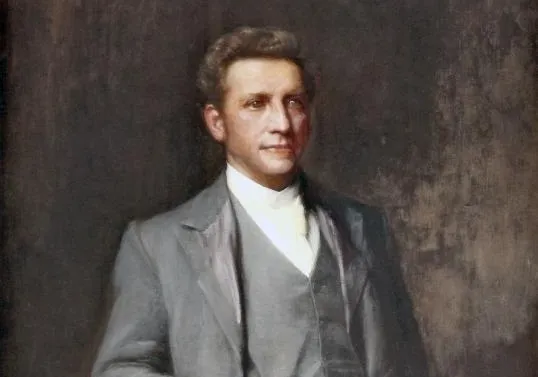
A stolen plaque, an undiscovered history
Sometime during the Covid lockdowns, with the world temporarily distracted by the complete global upheaval to life as we knew it, a small blue plaque disappeared from the front of 16 Wood Street in Bolton. It had been placed there decades prior to commemorate the birthplace of the 19th-century soap magnate and creator of Port Sunlight, Lord Leverhulme. The plaque-thief-cum-vigilante remains unknown to this day.
Perhaps the people of Bolton had other matters on their minds, but the disappearance of the good Lord’s plaque was not something that drew much interest at the time. A scour of the Bolton news sites from the time brings up nothing. The local Facebook pages in which matters such as plaque thefts or other acts of petty vandalism can be political hot potatoes, capable of causing feuds so severe neighbours blank each other in the street, are simply devoid of mention. In fact, it was of such meagre interest that the Bolton Socialist Club, who own 16 Wood Street, appear not to have noticed that the plaque was gone until 2022. A recent statement on their website noted that the club was only open in 2021 during the brief interregnum between lockdowns, and as such the absence of the blue plaque went unnoticed until the following year.
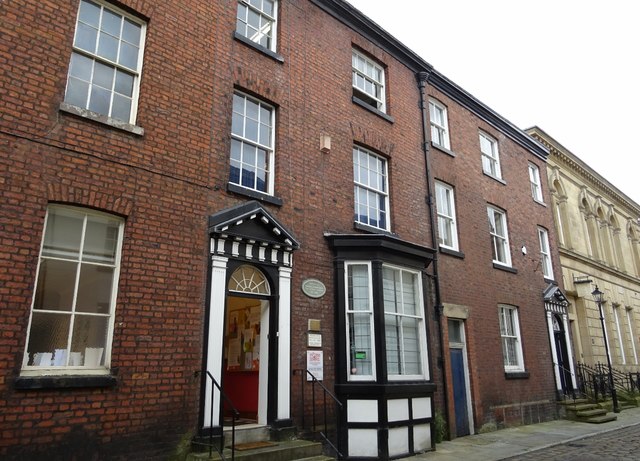
When they finally clocked it though, the socialists of Bolton sprung into action. A discussion, involving “both the Socialist Club and the Socialist Halls Committees”, commenced forthwith, and following “a period of reflection, research and debate” a unanimous decision was reached. The anonymous plaque poacher of Wood Street might not have played by the rules, but his heart was in the right place, they said. The club decided that the plaque would not be replaced — posting a heavily researched 12-page justification to their website last month. What’s more, it would be replaced by a new plaque: commemorating the suffragist and trade unionist Sarah Reddish. Leverhulme was gone for good.
The Death of a Titan
William Hesketh Lever returned from an overseas journey in 1925, feeling unwell. The illness quickly escalated into pneumonia, ultimately claiming his life at the age of 73 on May 7 1925. The impact of his death reverberated through his workforce, leaving them stunned.
As a funeral procession wound through the streets of Port Sunlight in Wirral, more than 30,000 mourners lined the route. Lever had created a picture-postcard setting, constructing homes with Jacobean gabling complete with exposed timbering, running water, and indoor bathrooms. Rents were a mere fraction of a weekly wage, endearing him to the hearts of those who called his village home. Today, Leverhulme and his wife, Elizabeth, are entombed in the local church. Their legacy is celebrated in the nearby museum and art gallery.
Since his death Lever has been hailed as a leading benevolent employer and philanthropist of his era. He created an empire from Sunlight soap that evolved into Unilever, a modern global consumer goods giant. Port Sunlight, meanwhile, at least in this region, is his most obvious legacy. Despite boasting, at most, a few thousand residents, the village (which has been considered for World Heritage status in the past) is home to 900 Grade II-listed buildings, as well as 130 acres of gardens.
Yet, if Lord Leverhulme could peer across the century, he'd find a world where that legacy and his reputation are now under threat. And not just at the hands of plaque thieves. Unilever, the Port Sunlight Village Trust and National Museums Liverpool have been pressed by Black Lives Matter and other activists into probing into his activities in territories like the Congo and the Solomon Islands where he cultivated palm tree oil for soap production.
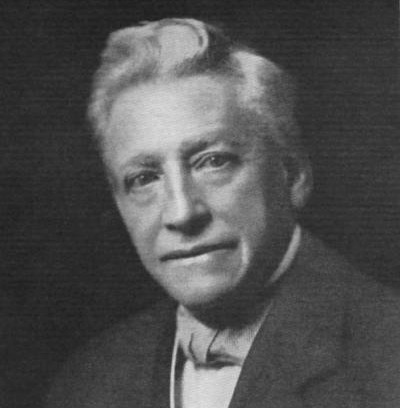
In 2020, a memorial to Leverhulme in Port Sunlight was placed on a target list comprised of Black Lives Matter activists as among the statues they’d like to see removed. The cultural moment that had arisen from the death of George Floyd in America, and seen Edward Colston’s bronze figure toppled from its plinth, strung up and slung into Bristol Harbour on a hot day now over four years ago, was now putting Leverhulme’s legacy in question. Colston was in the dock, and Leverhulme was too.
Leverhulme was a curious addition to the target list because in the past century and more his reputation has been immense, a man who created the model community of Port Sunlight on the Wirral for workers, championed votes for women and promoted pension schemes. As the standards of Edwardian employers go, and admittedly the standards are not that high, he was widely regarded as one of the era’s good guys.
The case of Lever is of seeming interest because it divides opinion. No one can mount a reasonable defence of Edward Colston. His involvement with the Royal African Company in the 17th century saw 80,000 slaves transported. Of those, around 20,000 died.
But Lever is not Colston. He certainly has charges against his name, predominantly relating to his company’s involvement in the Congo during the early 20th century, and by any modern standard, he was a virulent racist. But his case is a more nuanced one, and one that seems to get to the heart of this tricky issue of balancing histories.
Lever in the Congo
In the early 20th century Congo’s population had been ravaged by the tyrant Leopold ll of Belgium. When this came to light, causing scandal, the Belgian government intervened and looked toward benevolent employers to restore its tarnished reputation; Lever was offered 750,000 hectares to establish roots among the palm groves.
He told the authorities he would replicate his model of the ideal workers’ environment in West Africa. Although some facilities such as schools and hospitals were built, many local people were resistant to working on his plantations having spent many years cultivating the palm fruit as part of their agricultural way of life. Leverhulme’s plantation masters resorted to forcing people to work.
Today’s mass-scale palm oil production is such a powerhouse that it is behind around half of all packaged products in supermarkets. From chocolate to shampoo, instant noodles to ice cream, it fuels our massive appetite for consumer goods. It has also raised serious concerns about deforestation but Unilever now adopts a policy of sustainable production in areas in which it operates having left Congo in 2009.
The first case for Leverhulme’s defence tends to hinge on the fact he wasn’t Leopold II. In fact he wasn’t even close. Indeed, a passing glance at some of Leverhulme’s comments about the people of the Congo might make him appear about as benevolent as you could possibly hope for from an Edwardian industrialist.
“The Congo natives, although regarded as savages, nevertheless possessed the fundamental attributes of humanity – love of home, children and so forth – and the methods that brought out the best in ourselves were equally applicable to the dark-skinned people.”
The fact that Lever was a devout Christian also lent a missionary zeal to his objectives. At the time, intriguingly, Belgian socialist leader Emil Vandervelde (a staunch opponent of Leopold II and his activities in the Congo) said that
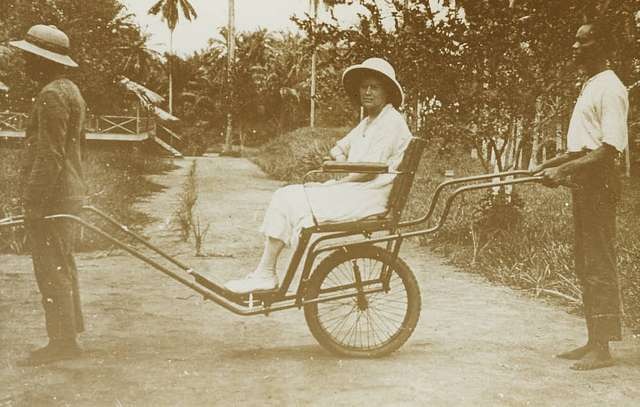
Lever had begun discussions with the Colonial governments in 1909, just a few years after the publication of a novel called’ Heart of Darkness’ by Joseph Conrad who went on to describe the pursuit of commodities in Congo as "the vilest scramble for loot that has ever disfigured the history of human conscience.” Alongside the Belgians Lever created a business called Huileries du Congo Belge (HCB) to conduct the operation. But as Lever Brothers discovered, creating a utopian metropolis in the African interior was far from easy, did not bring the promised light and joy and instead perpetuated a dark history of exploitation and abuse, hidden from public view for years.
Indeed, the past two decades have seen the publication of two significant books that have moved the dial on our understanding of Leverhulme’s life; Lord Leverhulme’s Ghosts (Marcharl, 2008) and The Dark Side of Sunlight (Hollett 2014). Indeed, after reading Marchal’s book, the historian Adam Macqeen, who had written a chapter in his own Lever book The King of Sunlight called “A Good Man In Africa”, apologised in a blog and retracted several of his defences (though continuing to assert that comparisons between him and Leopold II are absurd).
Marchal’s work in particular shone light on a lot of previously unknown; that the failure to even provide blankets to workers led to many deaths from pneumonia. That armed soldiers undertook tax collection on the government’s behalf, the purpose of which was “promoting labour recruitment”.
His book also quoted district commissioner Emmanuel Schmitz, who spoke in the months before Lever’s death in 1924, pouring cold water on the oft-asserted claim that Lever paid his workers fairly in Congo. “The HCB offers its workers a wage that in no way compensates them for their sacrifices,” Schmitz wrote in a letter. And the statement from the Bolton Socialists rightly asserts that while the most brutal tools of oppression were dropped in Leopold II’s wake, this was no easy ride for the Congolese:
“Arbitrary killing, rape, the severing of hands and other barbarisms were curbed, but the chicotte, a whip made from dried hippopotamus hide with razor sharp edges remained, as did the physical coercion, imprisonment for absconding and extortionate taxes”
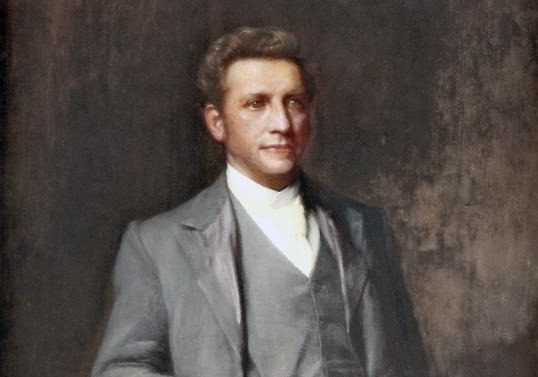
While many workers were forced to work for HCB, through taxation or the looming threat of violence, others absconded and saw their families imprisoned. This brings us to the second possible case for Leverhulme’s defence: that he was not aware of the extent of what was happening in the Congo. But this is dubious at best. It’s true, as the Bolton Socialist Club pointed out in their lengthy statement, that his own son had little time for the theory:
'In fact, it is no exaggeration to say that the organisation which came into being – from the shipping base at the port of Matadi and the headquarters at Kinshasa to the farthest reaches of Elizabetha, over a thousand miles from the Congo mouth – was his personal creation.'
And in 2021 a report commissioned by Unilever found similar, that after examining “the correspondence and records relating to the Solomon Island and Congo plantations in UARM (Unilever Archive and Records Management)” it was clear that Lever, “and other high-ranking individuals within Lever Brothers, were aware of the unsatisfactory working and living conditions“. In fact, Lever was involved in many of the decisions regarding the recruitment of labour.
Balancing histories
The day that Colston was sent for a swim, a reckoning began in Britain. People marched. People got angry at the marchers. Priti Patel, furious, demanded to know why Bristol Police hadn’t intervened on Colston’s behalf. The Walker Art Gallery in Liverpool pledged to “tirelessly dismantle systems of oppression”, launching an urgent review of its own blood-stained treasures. The National Trust was accused of “tarnishing” Winston Churchill after it linked his family home to slavery. At a Save Our Statues demonstration in London a man got very drunk and pissed next to the memorial to PC Keith Palmer, who was murdered during the Westminster terrorist attack. Somewhere in the middle, Leverhulme’s plaque was stolen.
It seems that in the four years since we haven’t found all the answers. To my mind, grouping Leverhulme in with Colston and his ilk, who is famous only because of the part he played in the slave trade and who was, even by the standards of the day, barbaric, isn’t the right approach. Leverhulme was a complex man, a man of contrasts, and a man who probably deserves a subtler approach.
But to be fair to those who have stood up to challenge him, they’ve brought about the first proper attempt to assess his activities in the Congo. Despite the work of Marchal and Hollett, little notice was taken until Black Lives Matter came about.
At Bolton School, which was founded by Leverhulme, Head of Foundation Phil Britton says he tells his students that Leverhulme “essentially has three projects where he linked industry with philanthropy and where that philanthropy was linked with changing lifestyles” One was Port Sunlight, another in the Hebrides, where he met issues because he was trying to tell fishermen how to fish and the other was overseas in places like the Congo where he was again seeking to impose a way of life on others.“This was a man of business certainly, a man who thought he was doing good, a man whose fault was where he did not take local people ‘on the journey’ but rather felt he knew best,” Britton says. Britton still believes his students can learn a lot from Leverhulme though. In 2023 he gave a speech at the talk informing students of how they could take “life lessons from Leverhulme”.
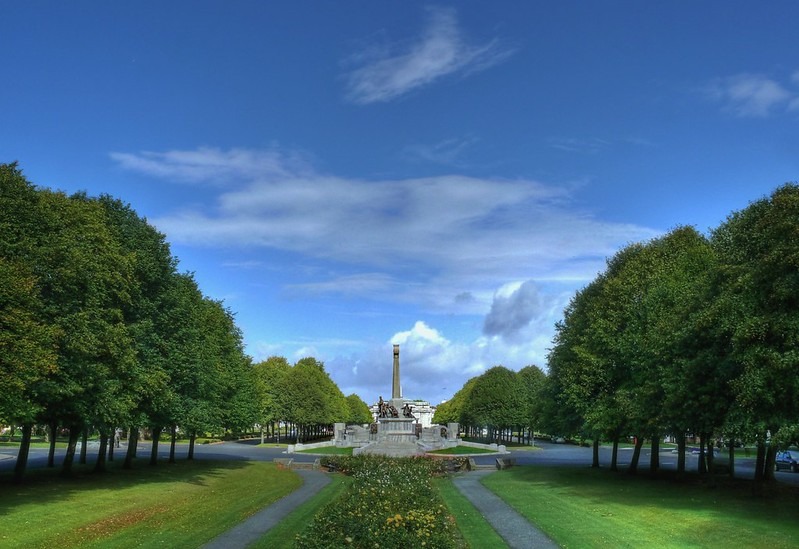
Moreover, Port Sunlight museum has stated that they “recognise we have not fully explored the problematic aspects of the business enterprises Port Sunlight’s founder, William Lever, in our museum or public spaces. This simply does not live up to our core values.” And a working group involving academics, museums and African groups is reassessing his achievements, focusing on activities in overseas territories in research funded by the Unilever corporation. A report will be unveiled later this year that will attempt to redress the balance on websites and in exhibitions at the Lady Lever Art Gallery and the Port Sunlight Village Trust.
The fact Unilever has finally opened its archives to intense examination is a positive move in the view of Professor Reuben Loffman, senior lecturer in African affairs at Queen Mary University, London, though it begs the question: why did it take pressure from activists like Black Lives Matter to compel them to do so? Speaking to The Post, Loffman is keen to point out that many companies “do not open their archives for researchers so Unilever is to be applauded.” However, he also believes the material is lacking. “There are few African voices in these archives. Furthermore, there are a lot of company voices. So, we often hear about ‘progress’ being made rather than the actual conditions of the workers.”
“What I don't want from this research is a story of good intentions gone awry. Lever was a paternalist, but that paternalism harmed Congolese people when implanted onto the colonial context,” Loffman says. “We need a thoroughgoing appraisal of the man, his brother, and his directors as well as the legacy of Lever to be included in this examination.”
So there we are. Can histories ever really be balanced? And does tearing down plaques address the imbalance? I guess that depends on how you view the role of a plaque. To commemorate and celebrate or simply to say in sober terms: a person of great note once lived here. I won’t weigh in on the plaque debate, but I certainly wouldn’t recommend razing Port Sunlight to the ground. But then again, next time I’m there maybe I’ll be a bit more aware of the history it stands on. A much more brutal one than we once thought.

Comments
Latest
Merseyside Police descend on Knowsley
And the winner is...
Losing local radio — and my mum
A place in the sun: How do a bankrupt charity boss and his councillor partner afford a “luxury” flat abroad?
Lord Leverhulme's legacy is being brought into the sunlight
A stolen plaque, an undiscovered history